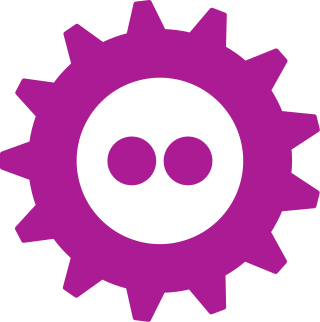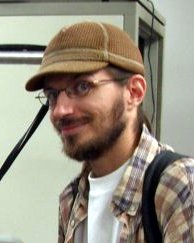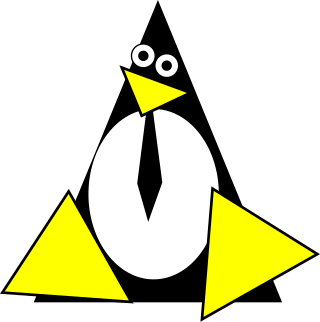Related Research Articles

Andrew Keith Paul Morton is an Australian software engineer. He is one of the lead developers of the Linux kernel, and a co-maintainer of the Ext3 file system, the journaling layer for block devices (JBD) and memory management.
The Linux Kongress was an annual conference of Linux developers from around the world, that took place every year from 1994 to 2010. It started as a two-day conference in 1994, when Linux was in the early stages of development, and by 2003 had become a four-day event. It occurred every year in Germany except 2001 and 2007. During its lifespan, Linux-Kongress was one of the three major international grass-roots Linux and Open Source conferences in the world, along with linux.conf.au and Ottawa Linux Symposium.
MkLinux is an open-source software computer operating system begun by the Open Software Foundation Research Institute and Apple Computer in February 1996, to port Linux to the PowerPC platform, and Macintosh computers. The name refers to the Linux kernel being adapted to run as a server hosted on the Mach microkernel, version 3.0.

LinuxTag was an annual Free and Open Source Software (FOSS) conference and exposition with an emphasis on Linux but also BSD descendants located in Germany. The name is a compound with the German Tag meaning "Day", as it was initially a single day conference, but soon extended to multiple days, then always including a weekend. LinuxTag was the world's largest FLOSS conference and exhibition for years and aimed to provide a comprehensive overview of the Linux and Free Software market as well to promote contacts between users and developers. With this broad approach LinuxTag was one of the most important events of this kind.

Free and Open source Software Developers' European Meeting (FOSDEM) is a non-commercial, volunteer-organized European event centered on free and open-source software development. It is aimed at developers and anyone interested in the free and open-source software movement. It aims to enable developers to meet and to promote the awareness and use of free and open-source software.

linux.conf.au is Australasia's regional Linux and open source conference. It is a roaming conference, held in a different Australian or New Zealand city every year, coordinated by Linux Australia and organised by local volunteers.
Stephen C. Tweedie is a Scottish software developer who is known for his work on the Linux kernel, in particular his work on filesystems.
OLS or Ols may refer to:

Jon "maddog" Hall is the board chair for the Linux Professional Institute.

David Stephen Miller is an American software developer working on the Linux kernel, where he is the primary maintainer of the networking subsystem and individual networking drivers, the SPARC implementation, and the IDE subsystem. With other people, he co-maintains the crypto API, KProbes, IPsec, and is also involved in other development work.
The Linux Kernel Developers Summit is an annual gathering of the top Linux kernel developers. Attendance at the summit is by invitation only, and the conference was first held in San Jose in March, 2001. It was organized by Theodore Ts'o to provide a face to face venue for kernel developers to discuss current and future issues surrounding Linux kernel development, and was initially run by Usenix and then VA Linux's Open Source Developer's Network. Subsequent summits from 2002 to 2006 were held the two days prior to the Ottawa Linux Symposium in Ottawa, Ontario, Canada at the same conference center with Usenix providing all of the logistical support. The 2007 Kernel Summit was held on 4–6 September 2007 at the DeVere University Arms Hotel in Cambridge, England, and was the first time the summit was moved outside of North America.
ext4 is a journaling file system for Linux, developed as the successor to ext3.
Obesity Canada - Obésité Canada (OC), formerly known as the Canadian Obesity Network - Réseau canadien en obésité (CON-RCO), is a Canadian charitable organization. It connects members of the public affected by obesity, researchers, health professionals and others with an interest in obesity.

Kernel-based Virtual Machine (KVM) is a free and open-source virtualization module in the Linux kernel that allows the kernel to function as a hypervisor. It was merged into the mainline Linux kernel in version 2.6.20, which was released on February 5, 2007. KVM requires a processor with hardware virtualization extensions, such as Intel VT or AMD-V. KVM has also been ported to other operating systems such as FreeBSD and illumos in the form of loadable kernel modules.
LinuxFest Northwest is an annual technology conference and expo held in Bellingham, Washington. It is a Saturday and Sunday weekend event held in late April or early May. The event is dedicated to discussion and development of the Linux operating system and other free and open-source software projects.

Campus Party (CP) is a conference and hackathon.

Open Source Summit is a name for a series of annual conventions organized each year since 2009 by the Linux Foundation. The first LinuxCon took place in North America. Linux Foundation started organizing similar events in Europe and Japan. The original LinuxCon was rebranded LinuxCon North America, adding to the list LinuxCon Europe and LinuxCon Japan.

Fórum Internacional de Software Livre (FISL) is an event sponsored by Associação SoftwareLivre.org, a Brazilian NGO that, among other goals, seeks the promotion and adoption of free software. It takes place every year in Porto Alegre, the capital of Rio Grande do Sul.

Smack is a Linux kernel security module that protects data and process interaction from malicious manipulation using a set of custom mandatory access control (MAC) rules, with simplicity as its main design goal. It has been officially merged since the Linux 2.6.25 release, it was the main access control mechanism for the MeeGo mobile Operating System. It is also used to sandbox HTML5 web applications in the Tizen architecture, in the commercial Wind River Linux solutions for embedded device development, in Philips Digital TV products., and in Intel's Ostro OS for IoT devices.
References
- ↑ Ottawa Linux Symposium: May get by with a little help from its friends, Paw Prints: Writings of the maddog, Linux Magazine, July 29, 2014